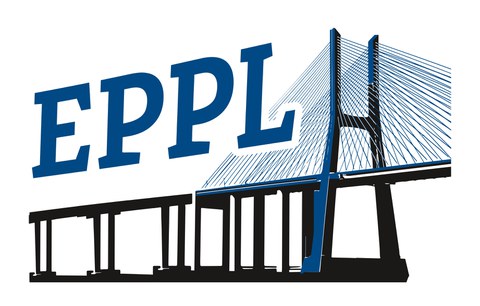EPPL
Description
EPPL promotional video © CTR Carinthian Tech Research
A sustainable and competitive European power semiconductor industry is essential to support the megatrend developments formulated in the Europe 2020 strategy - climate change, energy security, food security, and health & aging population. With power semiconductors playing a vital role in practically all these areas, it is of paramount importance to defend and further extend Europe’s leading position in both power semiconductor manufacturing science(s) and the corresponding application domains. Maintaining these core competencies clearly requires a major, comprehensive and carefully coordinated pan-European innovation effort.
Consequently, EPPL will combine Research, Development and Innovation (R&D&I) efforts with demonstration activities that address market readiness by industrial implementation at an early stage. EPPL thus aims at making a decisive step forward to strengthen Europe’s leading position in power semiconductor technologies and More-than-Moore manufacturing capabilities, relating in particular to possibly energy-efficient electronic solutions. 2nd generation power semiconductor devices fabricated in European leading pilot lines based on 300mm wafer production are at the heart of the project, for which manufacturing excellence, cost competitiveness and challenging applications are critical boundary conditions. With this, to leverage the technical characteristics of power devices and foster the trend towards system-in-package integration, advances in packaging technologies become of utmost importance. These aspects will be fully supported by this projects right from the beginning as well.
To achieve this goal, the project focuses on significant steps ahead to:
- Enhance the core competencies of European companies in the technology development for power semiconductors as well as the ability for production at competitive cost in Europe, thus also supporting the EU Key Enabling Technology (KET) initiative.
- Set up collaborative value chain(s) by early involvement of manufacturing science in academia, semiconductor manufacturers and leading European power electronics application providers.
- Bring semiconductor factories close to leading customers best serving European industry.
- Use User-centred design/development (UCD) approaches defining the products according to application needs providing the optimized technological innovation.
Work to be performed includes developing next generation power semiconductors based on 300mm wafers, setting up the required technologies as pilot line manufacturing, and demonstrating the thus achieved reliable and advantageous solutions for a wide range of ENIAC grand challenge application fields.
Based on a common technology base to be developed, the project aims at achieving the realization of demonstrators in a pilot line, and demonstrating production readiness in the large-scale production environments of strategically selected products and technologies. The demonstrators will be verified in fully functional, energy efficient power applications. Thus, this project will establish the technological base for providing leading energy efficient applications enabled by innovations in power technologies.
To enable this, the project will deal with challenges related to process and production technologies, as well as advanced power metallization technologies and dedicated manufacturing processes for thin 300mm wafers:
- Research on next generation of advanced power semiconductor technologies fabricated on 300mm wafers
- Identify and optimize relevant power semiconductor characteristics taking into account demonstrator application requirements of strategic importance
- Setting up a pilot line for next generation power semiconductor production on 300 mm wafers combining at least two European production sites
- Prove reliability and initial yield targets of the power semiconductor pilot line
- Achieve best-in-class productivity in manufacturing leading-edge power semiconductors for advanced, energy efficient industrial, medical and mobility applications
- Optimize chip-to-package interfacing stack for advanced 3D integration capabilities including a 3D pilot line setup for Si interposer
- Strengthen European intellectual property in semiconductor technology, manufacturing and assembly
Global responsibilities will thus be shared in a pilot line stretching across several European countries.
Expected results:
The central goal is to extend the leading position of power semiconductors “Made in Europe”. The expected improvement addresses technical challenges as well as commercial competitiveness, both in technology research, semiconductor manufacturing, chip/package interconnection technologies and energy efficient applications. Enabling this, a range of unique manufacturing processes and technologies are expected, as are a multitude of product innovations of direct impact onto everyday high-tech life, e.g. eco-friendly generation of solar power, extended ranges in automotive mobility, lower power consumption in illumination or smarter and more powerful medical-diagnostic appliances
Expected Impact:
In its Europe 2020 initiative, the European Commission has set ambitious targets for reduction of greenhouse gas emissions, energy efficiency and electro-mobility. Striving towards these goals, power semiconductors designed and manufactured at competitive cost and in sufficient quantities in Europe - enabled by equipment and materials supplied by European companies - will be key enablers.
A competitive European semiconductor industry is hence vital for finding solutions to the Grand Challenges identified by the EC. EPPL will not only contribute significantly to this, provide an enhanced pan-European pilot line and secure highly skilled jobs, but also initiate F&E activities that will further boost the IP in the related fields of high-tech knowledge.
With the help of EPPL, both the European semiconductor manufacturing industries and the high-tech industries dependent on such devices will make a significant step further in power semiconductors for highly power-efficient applications.
The leading position of European industry as system provider will be enabled by research on advanced packaging technologies for system integration.
Details
- Funding institutions: BMBF, ENIAC Joint Undertaking
- Duration: 36 months
- Project partners:
- Further information:
- Project website:

